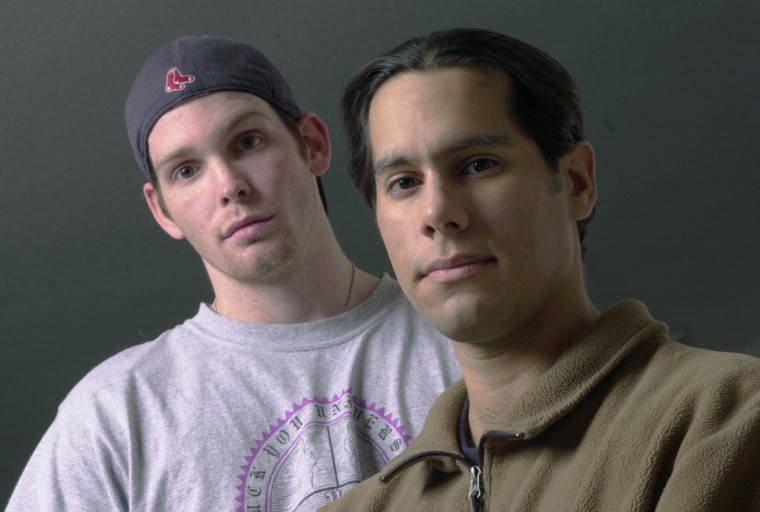At age 19 Alex Crionas was diagnosed with kidney disease.
Eight years after he was diagnosed with a form of kidney disease called Focal Segmental Glomerulosclerosis or FSGS, which is fairly common among children and young adults who have had kidney failure, his kidneys failed, forcing him to undergo dialysis three times a week.
In 2003 he joined the list of more than 87,000 people waiting for an organ transplant in the United States. What he didn’t want to join was the 6,271 patients who died that same year waiting for an organ.
To help his odds he opened a Web site called selflessact.net. He hoped that by telling his story he might find a donor, but that never happened.
Instead fate, not the Web, came to his rescue.
In October Crionas met 23-year-old Patrick Garrity at a party in Orlando. After hearing Crionas’ story, Garrity agreed to undergo testing to see if he might be a potential life-saving match. Turns out he is.
Believing his wait and suffering were at an end, Crionas applied to LifeLink Health Care Institute, which coordinates transplants for Tampa General Hospital.
That’s when Crionas got a shock. LifeLink turned down his request for surgery.
The reason? Crionas received a letter from the transplant center saying his application was rejected because of his Web site.
Web site not welcome to organ donor world
Apparently, seeking help on the Web is frowned upon in the organ transplant world. The United Network for Organ Sharing and the American Society of Transplant Surgeons both are on record opposing organ appeals using the Web.
There are a number of reasons experts give. One key reason is that the use of the Web could open the potential for the buying and selling of transplant organs, which is ethically wrong, not to mention illegal. Also, patients with computers and the skills to use them would have an advantage over those who do not. Finally, it circumvents a system designed to match need and the length of time a patient has been waiting for their chance to live.
Such issues have not stopped others from seeking help from the Internet. There are numerous sites that link those in need to potential donors.
Garrity says he was just as shocked as Crionas about the surgery rejection, calling it unfair.
But Ruth Bell, media representative for LifeLink, says having a Web site is not something that would automatically rule out a recipient for an organ transplant. However, she declined to discuss Crionas’ case due to privacy laws.
Crionas, meanwhile, has transferred his medical records to another organization that coordinates transplants for a 10-county region in central Florida. He says they claim his Web site is not a problem.
Crionas hopes it will finally untangle the kidney he needs from the Web he created trying to find it.
